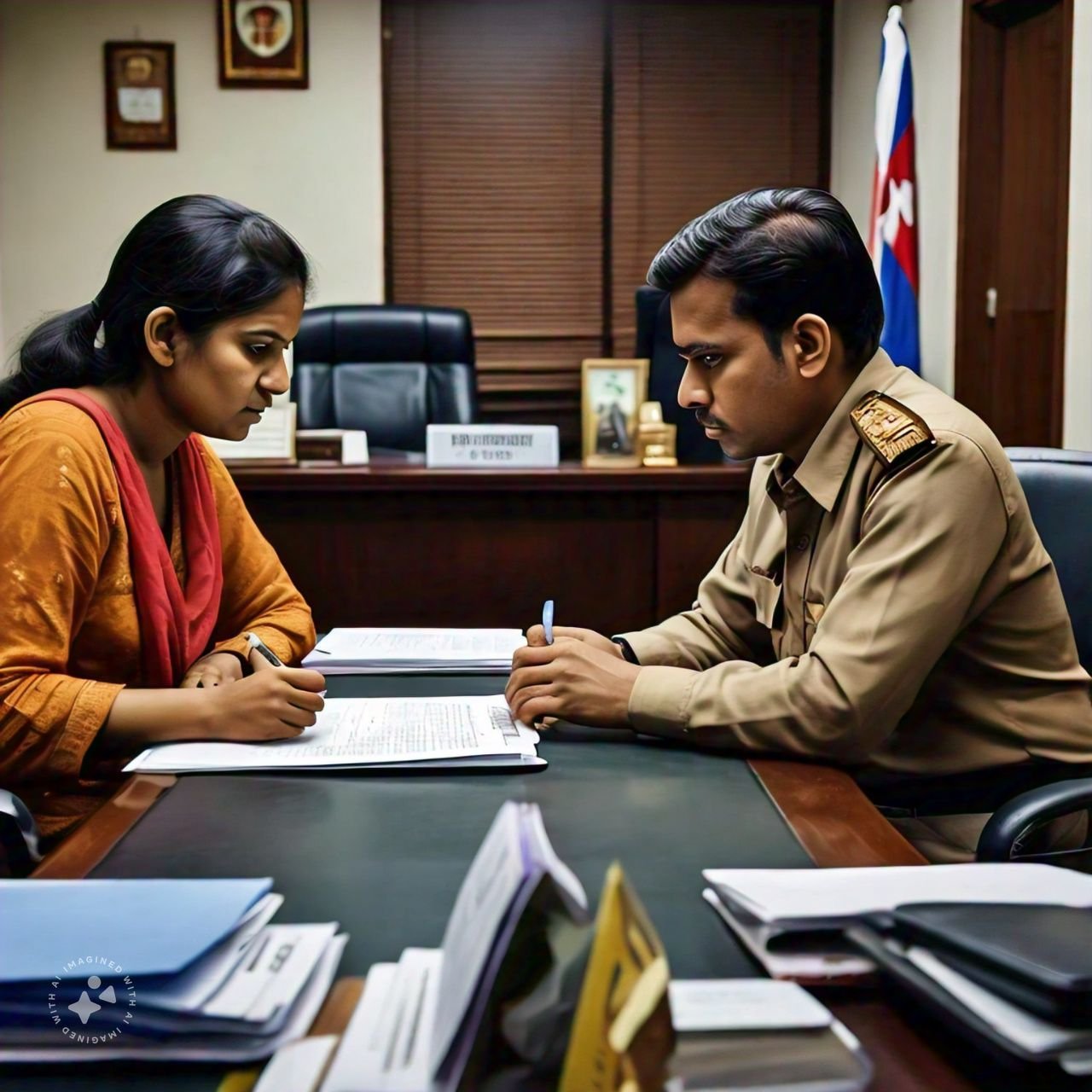Introduction
Visa extensions provide travelers with the flexibility to stay longer in a foreign country. Many travelers encounter situations where their initial visa duration is insufficient. Whether it’s due to personal reasons, work commitments, or travel disruptions, extending a visa becomes crucial. Countries allow visa extensions to ensure that travelers do not overstay and face legal consequences.
The process of extending a visa depends on the type of visa and the country’s regulations. Some countries offer a seamless online process, while others require applicants to visit immigration offices. The reasons for requesting a visa extension must be valid and supported by documentation. Common reasons include medical needs, family emergencies, or work-related obligations.
By applying for a visa extension, travelers avoid penalties such as fines or deportation. It’s essential to understand the application procedures and gather the required documents in advance. The cost and processing time for visa extensions vary by country and visa type. Applying early is always advisable to prevent overstaying.
In conclusion, visa extensions offer peace of mind for those needing extra time abroad. Understanding the process ensures a smooth experience and avoids potential legal issues. Always follow the correct procedures when seeking a visa extension.
read more : Passport Office Locations
Why Visa Extensions Are Important
Visa extensions play a vital role in allowing travelers to extend their stay legally. Many people face unforeseen situations requiring them to remain in a foreign country beyond their visa expiration. Visa extensions help travelers avoid the negative consequences of overstaying their visas. Without an extension, travelers risk facing fines, deportation, or even future travel bans.
Countries have established visa extension processes to ensure compliance with their immigration laws. By applying for an extension, individuals show respect for local regulations and avoid penalties. It is crucial to follow the proper procedures for a smooth and legal extension process.
Visa extensions are especially important for those with work, medical, or personal emergencies. Travelers may need more time to complete business projects, recover from health issues, or support family members. In such cases, an extension becomes necessary to stay legally in the country.
In addition, students and workers often need visa extensions to continue their studies or employment. Without an extension, they may be forced to leave prematurely, disrupting their plans. Visa extensions allow travelers to manage unexpected situations while maintaining legal status.
In conclusion, visa extensions provide critical flexibility and prevent potential legal complications. They help travelers adjust their stay while complying with immigration rules.

Types of Visa Extensions
Visa extensions come in various forms, depending on the type of visa held by the traveler. Generally, visa extensions can be classified into short-term and long-term extensions. Each type serves different purposes and applies to specific visa categories.
Short-term visa extensions usually apply to tourist and visitor visas. Travelers who need extra time for vacation or family visits may request these extensions. The duration of these extensions varies, but they generally allow a stay of a few additional weeks or months. Applicants must provide a valid reason and meet the eligibility requirements to qualify.
Long-term visa extensions are common for students, workers, and temporary residents. Students may need extra time to complete their courses, while workers might extend their contracts. In these cases, long-term extensions enable individuals to stay for several months or even years. These extensions often require more documentation, such as proof of employment or enrollment in a recognized institution.
Certain countries also offer humanitarian visa extensions for emergencies like medical treatment or natural disasters. These extensions are granted on compassionate grounds and allow temporary relief during unforeseen events.
In conclusion, different types of visa extensions cater to diverse needs. It is essential to understand the appropriate extension type for your specific situation.
Eligibility Requirements for Visa Extensions
Eligibility for visa extensions varies depending on the visa type and the country’s specific regulations. However, certain common requirements apply across most visa categories. Travelers must meet these criteria to ensure their extension request is approved.
First, applicants must have a valid visa at the time of application. Overstaying a visa can result in immediate denial of the extension request. It is crucial to apply for an extension before the current visa expires. Timely submission shows that the traveler respects the immigration rules.
Second, a legitimate reason for the extension is essential. Travelers must provide a clear explanation, such as medical emergencies, work obligations, or personal circumstances. Documentation supporting the reason for the extension should accompany the application.
Third, applicants must demonstrate financial stability to cover their extended stay. Countries want assurance that travelers can support themselves without burdening local resources. This may include bank statements, proof of employment, or sponsorship letters.
Additionally, maintaining a clean immigration history is vital for approval. Individuals with previous violations may face difficulties in securing an extension. The applicant must also adhere to any specific requirements set by the country’s immigration authorities.
In conclusion, meeting eligibility requirements is key to obtaining a visa extension. Proper documentation and a timely application increase the chances of success.
How to Apply for a Visa Extension
Applying for a visa extension requires careful attention to the process and required documents. The first step involves understanding the specific application process for the country where the extension is needed. Each country has its own procedures, ranging from online applications to in-person submissions at immigration offices.
Before applying, ensure that your current visa is still valid. Overstaying can complicate the process and result in penalties. Begin the application process well before your visa expires to avoid issues. Early application demonstrates respect for immigration rules.
Next, complete the visa extension application form accurately. Inaccurate information can lead to delays or even denial. Some countries may offer online application portals, while others may require physical forms.
You will also need to provide necessary documents. These typically include your valid passport, visa, and proof of financial stability. Depending on your reason for the extension, additional documents like medical reports or employer letters may be required.
Finally, pay the visa extension fee as per the country’s regulations. Once your application is submitted, track its status and follow any additional instructions from immigration authorities.
In conclusion, applying for a visa extension involves a step-by-step approach. Timely submission and accurate documentation ensure a smooth process.
Documents Required for Visa Extension
When applying for a visa extension, submitting the correct documents is essential for approval. The required documents may vary based on the country and type of visa, but certain common items are typically needed for all visa extension applications.
First, a valid passport is required. Your passport should remain valid for the duration of your extended stay. Most countries will not accept applications if the passport is about to expire.
Second, the current visa must be provided. Immigration authorities will review the existing visa to ensure it has not expired. It’s important to apply before the original visa’s expiration date.
Third, applicants must submit proof of financial stability. This can include recent bank statements, salary slips, or sponsorship letters. Countries require proof that you can support yourself without relying on government assistance.
Depending on the reason for the extension, additional documents may be necessary. For instance, travelers requesting extensions for medical reasons may need to provide a doctor’s report. Those extending for work may need an employer letter or a new employment contract.
Lastly, an application form, duly filled out, and the visa extension fee receipt must be included. Submitting complete documents ensures a smoother process.
In conclusion, providing accurate documents is key to a successful visa extension. Always check specific requirements for the country you’re in.
Visa Extension Fees and Processing Time
Visa extension fees and processing times vary depending on the country and visa type. Understanding the costs and timeline helps applicants plan their extensions better and avoid overstaying.
Visa extension fees are typically based on the type of visa and the length of the requested extension. Tourist visas generally have lower fees compared to work or student visas. Some countries offer flat rates for extensions, while others may charge on a sliding scale based on the stay duration. It is important to check the specific fee structure for the country you are applying in.
Processing times for visa extensions can range from a few days to several weeks. The complexity of the application and the applicant’s status can affect the timeline. It’s advisable to submit the application well in advance to account for any potential delays. Applying early ensures that the process is completed before the visa expires, avoiding legal issues.
Certain countries also offer expedited processing for an additional fee. This option can be helpful for those needing urgent extensions. However, it’s best to apply as early as possible to avoid paying extra.
In conclusion, visa extension fees and processing times vary. Early application and understanding the fees help ensure a smooth extension process.
read more :
Common Reasons for Visa Extension Denials
Visa extension denials can occur due to various factors, and understanding the common reasons helps avoid rejection. Immigration authorities carefully review each application to ensure compliance with regulations.
One frequent reason for denial is overstaying the current visa. Applying after the visa expiration reduces the chances of approval. It’s crucial to apply before the visa expires to avoid legal issues.
Incomplete or incorrect documentation also leads to rejections. Missing required documents, inaccurate information, or invalid paperwork can cause delays or denials. Ensuring all necessary documents are submitted correctly is essential for approval.
Another common reason for denial is providing an insufficient reason for the extension. Authorities expect valid explanations such as medical emergencies, work obligations, or family matters. Unsupported or vague reasons often lead to rejection.
Financial instability can also result in denial. If applicants cannot prove they have enough funds to support themselves, their application may be rejected. Most countries require proof of financial stability to grant extensions.
Previous immigration violations, such as illegal activities or past visa overstays, also increase the likelihood of denial. A clean immigration record boosts approval chances.
In conclusion, visa extension denials occur due to overstaying, incomplete documents, insufficient reasons, or financial issues. Following procedures carefully ensures a higher chance of success.
Consequences of Overstaying a Visa
Overstaying a visa can lead to serious legal and personal consequences for travelers. Every country enforces strict immigration rules, and exceeding the permitted stay can result in significant penalties.
One immediate consequence is a fine. Many countries impose financial penalties on individuals who overstay their visas. The longer the overstay, the higher the fine, which can become costly.
Another consequence is deportation. If authorities discover that a traveler has overstayed, they may initiate deportation proceedings. Deportation can disrupt future travel plans and result in being banned from re-entering the country for a specific period.
Overstaying a visa can also affect future visa applications. Immigration authorities often consider past visa violations when reviewing future applications. A history of overstaying may reduce the chances of getting approved for visas in the future.
In addition, overstaying a visa can damage your reputation with employers or academic institutions. Those on work or student visas may lose job opportunities or be forced to discontinue their studies due to visa violations.
Finally, overstaying may result in detention by immigration authorities, leading to further legal complications. It’s crucial to leave or apply for an extension before the visa expires.
In conclusion, overstaying a visa can result in fines, deportation, and future visa difficulties.

Tips for a Successful Visa Extension
Securing a visa extension requires careful planning and adherence to procedures. Following these tips can enhance your chances of success and avoid potential issues.
First, apply for the extension well before your current visa expires. Early application demonstrates respect for immigration rules and avoids last-minute complications. This also gives you ample time to address any issues that may arise during the process.
Second, ensure that you provide complete and accurate information in your application. Double-check all forms and documents for accuracy. Incomplete or incorrect information can lead to delays or denial of the extension.
Third, gather and submit all required documents. This typically includes your valid passport, current visa, proof of financial stability, and any additional documentation relevant to your reason for extending your stay. Missing documents can result in a rejected application.
Fourth, provide a clear and valid reason for your extension request. Whether it’s for medical reasons, work, or family matters, make sure your explanation is detailed and well-supported by documentation.
Finally, pay the correct visa extension fee and keep the receipt. Some countries also offer expedited processing for an additional fee if you need a quicker decision.
In conclusion, timely application, accurate information, complete documentation, valid reasons, and correct fees are key to a successful visa extension.
Conclusion
Visa extensions are crucial for travelers needing extra time in a foreign country. Understanding the process and requirements is essential to ensure a smooth experience. Applying for an extension before your visa expires avoids complications and legal issues.
Meeting eligibility requirements and submitting accurate documentation play a significant role in the success of your application. Common reasons for denials, such as incomplete forms or financial instability, can be avoided with careful preparation.
Paying attention to visa extension fees and processing times helps in planning and managing expectations. Applying early provides ample time to handle any potential delays or additional requirements.
Overstaying a visa can lead to severe consequences, including fines, deportation, and difficulties with future visa applications. Adhering to visa regulations and seeking an extension in a timely manner prevents such issues.
In summary, a successful visa extension involves timely application, accurate documentation, valid reasons, and adherence to fees. Following these guidelines ensures compliance with immigration laws and allows for a smooth extension process. Proper preparation and understanding of the requirements are key to extending your stay legally and efficiently.
FAQs
1. What is a visa extension?
A visa extension allows travelers to extend their stay beyond the original visa expiration date. It provides additional time in the country legally.
2. How early should I apply for a visa extension?
Apply for a visa extension well before your current visa expires. Early application helps avoid legal issues and provides time for processing.
3. What documents are required for a visa extension?
Common documents include a valid passport, current visa, proof of financial stability, and any additional supporting documents. Requirements vary by country.
4. Can I extend my visa if it has already expired?
Applying after your visa has expired can result in complications. It is best to apply before the visa expiration date to avoid penalties.
5. How long does it take to process a visa extension?
Processing times vary by country and visa type. It can range from a few days to several weeks. Apply early to account for potential delays.
6. What are the consequences of overstaying a visa?
Overstaying a visa can lead to fines, deportation, and difficulties with future visa applications. It is important to adhere to visa regulations.
7. Can I expedite my visa extension?
Some countries offer expedited processing for an additional fee. Check with immigration authorities for available options and associated costs.
8. What should I do if my visa extension application is denied?
If denied, review the reasons provided and address any issues. You may need to reapply or seek legal advice depending on the situation.
In summary, understanding the visa extension process and requirements helps in managing your stay effectively and avoiding complications.
